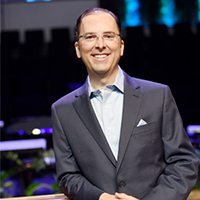Good for the long haul: Pastoral sabbaticals offer renewal
Observing the sabbath can be tough for ministers, but taking time away from the demands of ministry can help them maintain emotional, physical and spiritual health.
A 2015 LifeWay Research survey of 1,500 pastors of evangelical and historically black churches revealed 84 percent said they are “on call” 24 hours a day. The survey showed 54 percent found the pastor’s role frequently overwhelming, and 48 percent said they often felt the demands of their job to be more than they could handle.
Some ministers “unplug” on a regular basis by turning off cell phones and computers for a prescribed time each week and taking time away from the church office. Some enjoy periodic retreats at conference centers. Others find it hard to get away from the day-to-day grind.
The 2015 LifeWay Research survey revealed 71 percent of their churches had no plan for a pastor to receive a periodic sabbatical.
The meaning of the term “sabbatical” varies according to the context. In the Old Testament, it meant the ground in ancient Israel was left fallow every seven years. In the academic environment, it refers to the paid leave a college professor often is given every seventh year for research, travel or study.
In the ministerial context, the duration and purpose of a sabbatical may vary widely depending on the congregation.

“I am convinced more lay leaders need to insist their pastors take regular breaks even beyond vacations,” Thom Rainer, who announced his plans last August to retire as president and chief executive officer of LifeWay Christian Resources, wrote in a blog post several years ago, Five Reasons Your Pastor Should Take a Sabbatical.
Rainer insisted pastors—and the churches they serve—benefit from time off for rest and/or study. He asserted pastors who have sabbaticals tend to have longer tenure at churches because they are less likely to experience burnout.
Change in the rhythm
Kyle Childress has served Austin Heights Baptist Church in Nacogdoches as pastor about 30 years and taken three sabbaticals.
“An important aspect of sabbaticals, at least in my experience, is that it gives me enough time away to truly renew,” Childress said.
Sundays tend to set the “rhythm” for a pastor’s week, he noted. Even with interruptions and emergencies, the minister’s week follows a certain familiar rhythm of preparation for preaching on Sunday.
“Vacation time comes along and takes us out of that routine for a couple of weeks,” he said. “The vacation is needed and wanted and is gratifying, but my experience is that coming back after vacation is difficult. My rhythm has been broken and getting back to that first sermon is hard.
“Sabbaticals, on the other hand, change the rhythm but last long enough to allow me to truly rest, perhaps even develop a new rhythm, always with the goal of returning to the congregation. So when the time comes to return, I’ve found myself eager to return. I welcome the old rhythm and enjoy being back.”
Childress noted when he arrived in Nacogdoches about 30 years ago, it was up to the church to fund and budget for the pastor’s sabbaticals. Now, various grants are available through denominations or foundations to help congregations subsidize sabbaticals, he observed.
Delegate leadership to others

Brent Taylor, pastor of First Baptist Church in Carrollton, realized he needed a plan when he went on a recent sabbatical.
“Because of our size, we have staff to cover in my absence,” Taylor said. “I gave specific leadership responsibilities to several different people and they operated as a team. However, I also knew I needed to have one person who could make ultimate decisions in my stead.”
During his seven-week sabbatical, some major decisions required his consultation, but not all of them demanded that his time away be interrupted.
“I was able to get away from the small decisions that a pastor faces all the time and only weigh in on the bigger issues,” he said.
Taylor believes pastors need to take time away from the responsibilities of church.
“When I was younger, I thought I had to be at the office all the time. This is actually a prideful attitude that communicates that I think the church cannot function without me being there,” he said.
“What I have found is that time away refreshes me and makes me a better leader when I am in the office.”
Carolyn Tomlin is a freelance writer who teaches the Boot Camp for Christian Writers.